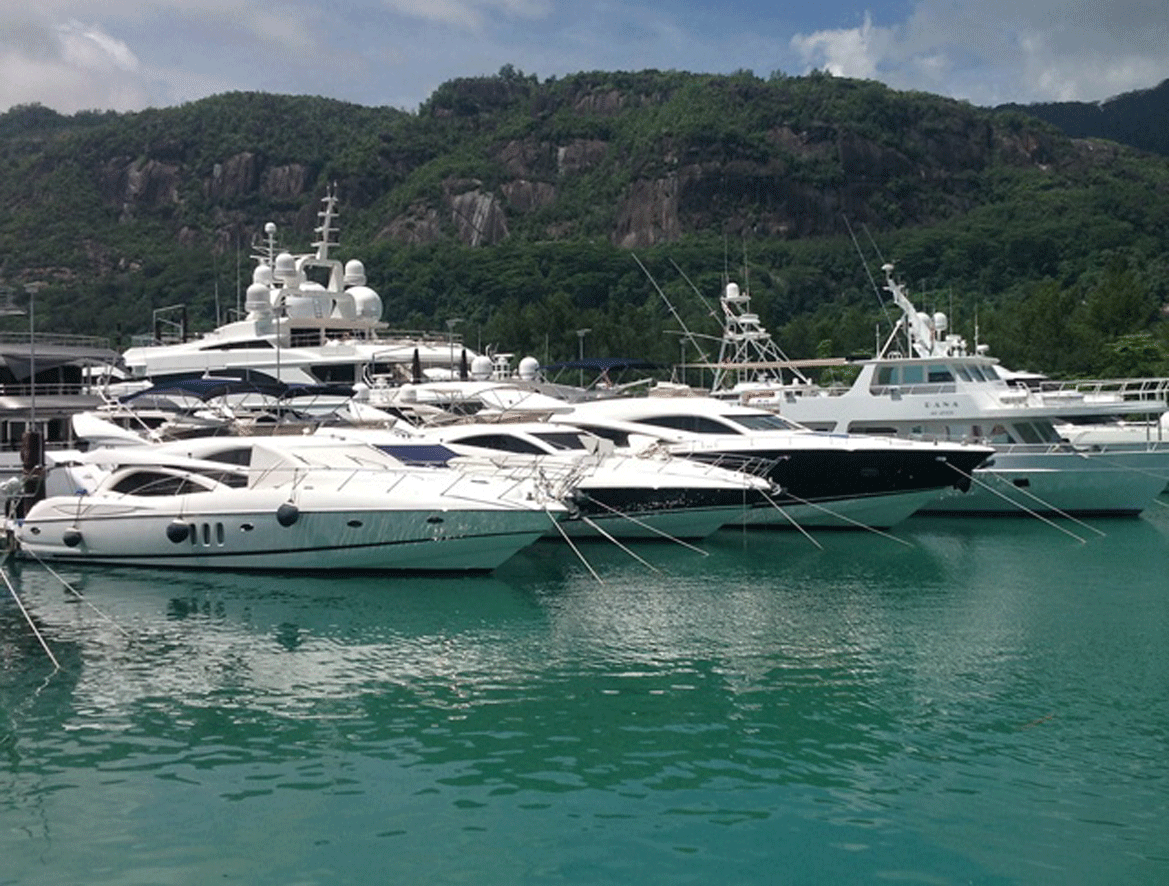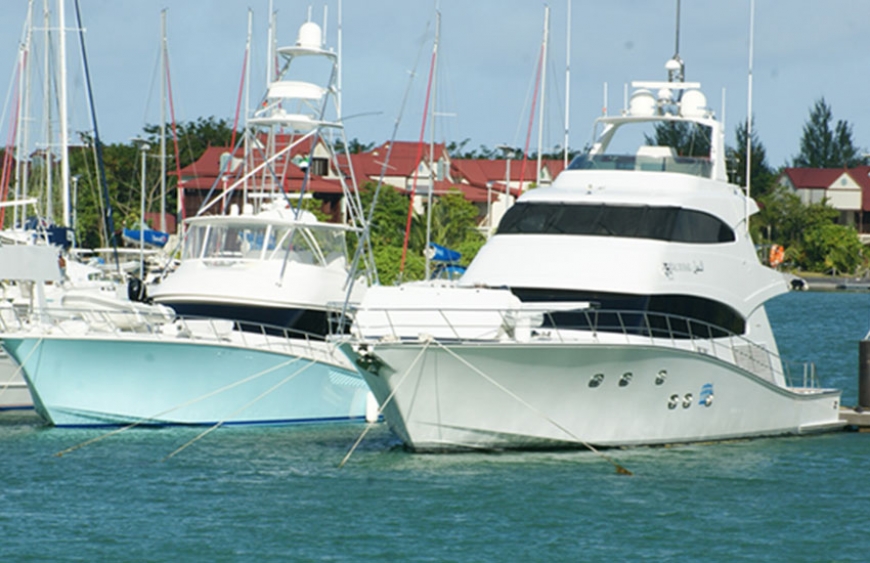The Seychelles’ approach to the Blue Economy is pushing it to re-look at benefits and opportunities from the existing marine related sectors. In two key moves in May, government announced it would be reviewing and revising policy and tax laws governing the burgeoning yachting industry as well as its intention to set up a Fisheries Economic Intelligence Unit (FEIU) which will be dedicated to the monitoring and analysis of the fisheries sector’s economic performance.
The Minister for Finance, Trade and the Blue Economy Jean-Paul Adam said in the National Assembly in May this year that investigations are being carried out into incidences of breach of licences and tax evasion in the yacht operations business. The Minister said it is unfortunate that there are operators who are not ensuring that information relating to their business activities required by government is duly provided. There are concerns over yacht owners overstaying on their temporary stay requests thus avoiding to pay the necessary taxes, and also that some of these yachts are also involved in illegal chartering. The government is now reviewing the entire tax system for yacht operations. (Read more)
 photo courtesy of seychelles news agency
photo courtesy of seychelles news agency
The Blue Economy cannot be about “Business as Usual”
In a recent article I wrote in one of Seychelles leading papers The People I revealed that many operators register their yachts as “offshore” International Business Companies (IBCs) to avoid paying any sort of tax including on profit, dividends, sale and transfer, employee salaries and inheritance. This is unfair to the ordinary Seychellois taxpayers who are therefore underwriting the operations of rich “offshore” yacht owners. It is also detrimental to the protection of the environment because the yacht operators are not paying the requisite taxes as compensation for the damage they caused through anchor drops, release of sewage and so forth – the “Polluter Pays” principle
In the fisheries sector weak governance and environmental degradation of habitats are the main reasons for unsustainable resource use. Seychelles is a fish-dependent nation and it’s obvious that such human communities become more vulnerable when fish communities become less resilient. The World Bank says that improvements in governance result in sustainable improvements in communities, ecosystems, and economies.
The need to create a FEIU within the Seychelles Fishing Authority (SFA) was identified in 2013 as part of the recommendations from the Regional Smartfish project for the purpose of improving the monitoring and analysis of the sector’s performance.This proposal followed from a project funded by the World Bank to develop an economic intelligence tool for the tuna industry to measure the direct and indirect benefits generated by the Seychelles tuna industry. A workshop running under the theme ‘The initiative to strengthen the economic intelligence in Seychelles’ fisheries sector’ was held at last week to begin the work with stakeholders to develop the FEIU.
There is an urgent need to improve the social, environmentaland economic sustainability of our marine related sectors. Both the yachting and fisheries sectors cause environmental degradation and overexploitation of resources. The “Polluter Pays” principle must apply in these cases. But if taxes and other financial benefits are not being captured properly then the ordinary Seychellois taxpayer and businesses are funding the lifestyles of rich operators and investors and government is not getting adequate taxes which may lead it to taxing local people even more.
The movement to establish a Blue Economy must build momentum to not only innovate but also improve existing activities that are currently underperforming in terms of social, economic and environmental benefits. The Blue Economy cannot be about “Business as Usual”, rather it must be looking at new ways of doing things. There’s obviously a lot of work to reform and to make change.
By Nirmal Shah, Nature Seychelles CEO

